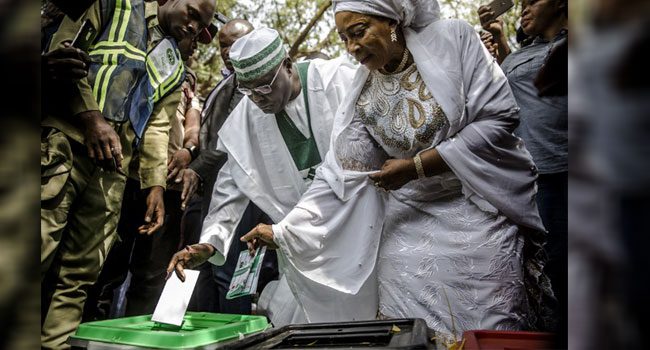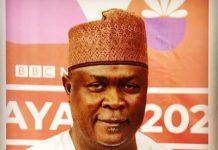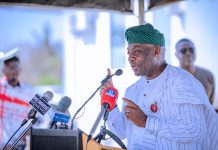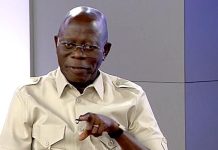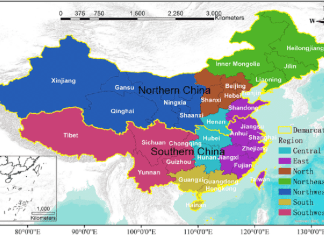The February 25 presidential election was marred by numerous Independent National Electoral Commission (INEC) failures, according to the European Union Election Observer Mission to the 2023 General Election in Nigeria (EU EOM).
The EU claims that among other things, operational flaws and a lack of transparency were to blame for INEC’s operational failures.
However, in a swift response to the EU report, INEC defended the conduct of the 2023 elections, insisting that despite the difficulties, the election had many positive aspects.
In Abuja, while delivering the Mission’s final report on the election, the EU’s chief observer and delegation leader, Barry Andrews, stated that the election “exposed enduring systemic weakness and therefore signalled a need for further legal and operational reforms to enhance transparency, inclusiveness, and accountability.”
However, he regretted that the general election of 2023 did not guarantee a well-run, transparent, and inclusive democratic process as assured by the INEC. He noted some improvements in the election’s conduct, particularly the use of technology such as the Bimodal Voter Accreditation System (BVAS) and the INEC Results Viewing Portal (IReV).
He continued by saying that civil society organisations demanded an independent audit of the entire process because public confidence and trust in INEC had been severely undermined during the presidential election and had not been restored by the state elections on March 18.
In the early stages of the process, while enjoying widespread stakeholder trust, Andrews stated: “INEC introduced a series of positive measures to strengthen the conduct of the elections. However, as election day drew near, some began to question INEC’s internal capacity as well as its administrative and operational effectiveness.
“Due to its operational shortcomings and lack of transparency, the public’s confidence gradually declined and was severely harmed on February 25. Even though some corrective measures put in place before the elections on March 18 were successful, overall confidence was not restored.
He said that the introduction of the INEC Results Viewing Portal (IReV) and the Bimodal Voter Accreditation System (BVAS) was widely regarded as a crucial step in ensuring the legitimacy and integrity of the elections.
However, the chief observer claimed that in reality, numerous errors and a lack of transparency prior to the election, combined with the significantly delayed display of the presidential result forms, destroyed the public’s faith in the used election technologies.
The member of the EU Parliament continued, “INEC failed to provide a timely and thorough explanation for the failures of February 25; as a result, the improved online display of results forms from the state elections on March 18 only served to fuel more speculation about the precise reasons for the delays following the presidential election.
The late arrival of sensitive materials seriously hampered voting on February 25, and during the initial collation, presidential results from polling units were not shown on the IRev in real time as promised by the INEC and expected by all stakeholders.
“On February 25, during the collation stage, there was a critical failure in the entire election process as a result of widespread disorganisation, a disregard for the established procedures, and an unsuitable environment. By the time the presidential results were announced, one-fourth of the results forms were still missing from IReV, and a sizable portion of the forms uploaded there, which were frequently required for comparison with manual results, were illegible.
The EU EOM is providing 23 recommendations, of which six are given priority for consideration by the Nigerian authorities in order to help improve future elections in Nigeria, according to the EU.
“We are particularly concerned about the need for reform in six areas which we have identified as priority recommendations, and we believe, if implemented, could contribute to improvements for the conduct of elections,” Andrews continued.
The six top suggestions include actions to clear up legal ambiguities, create a transparent selection process for INEC members, ensure real-time publication of election results, increase media practitioners’ protection, address discrimination against women in politics, and punish impunity for electoral offences.
The chief observer emphasised that “political will is required to achieve improved democratic practises in Nigeria.”
“Continued stakeholder consultation on electoral reforms is essential. The European Union is prepared to assist Nigerian stakeholders in putting these recommendations into practise, he continued.
He bemoaned the fact that the EU had recorded 101 violent incidents during the campaign, at least 74 of which resulted in fatalities, and that assassination attempts and murders had increased as the election approached, making the southern states and some northern states particularly uneasy.
However, in a swift response to the EU report, INEC defended the way the 2023 elections were conducted, insisting that despite the difficulties, there were many positive aspects of the vote. It also gave the assurance that the Commission would harmonise the EU’s recommendations with those of other election observers.
Festus Okoye, the INEC commissioner in charge of voter education, stated that it was clear from the reports that the EU had acknowledged the fact that our electoral system had undergone significant improvement and that this election had produced a great deal of good.
“We registered over 93 million Nigerians during this election, which is one of the positives you had. Furthermore, if you review every report that has been submitted, you will notice that both domestic and foreign observers attested to the fact that the BVAS performed flawlessly in terms of voter accreditation. So the BVAS is in perfect working order.
“Secondly, you can see that almost all domestic and international observers’ made mention of the fact that there were significant improvements in the conduct and management of the elections in terms of the Senatorial election, in terms of the House of Representatives elections, in terms of the governorship election, as well as in terms of the state houses of assembly election.”
However, Okoye recalled the difficulties INEC faced, such as insecurity and violence against its employees, and emphasised that INEC would work to address the operational shortcomings seen during the elections.
Join Television Nigerian Whatsapp Now
Join Television Nigerian Facebook Now
Join Television Nigerian Twitter Now
Join Television Nigerian YouTUbe Now

